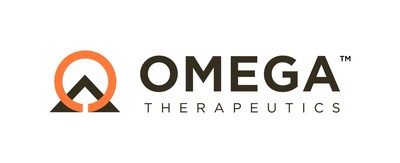Omega Therapeutics Receives Orphan Drug Designation for OTX-2002 for the Treatment of Hepatocellular Carcinoma
Phase 1/2 MYCHELANGELO™ I Clinical Trial Underway to Evaluate Safety, Tolerability and Preliminary Antitumor Activity of OTX-2002
The company recently announced that the first patient had been dosed in its Phase 1/2 MYCHELANGELO™ I clinical trial investigating the safety, tolerability, pharmacokinetics, pharmacodynamics, and preliminary antitumor activity of OTX-2002 as a monotherapy and in combination with standard of care therapies in patients with relapsed or refractory HCC and other solid tumor types known for association with the MYC oncogene.
"HCC is a devastating illness that often develops resistance to current standard of care therapeutics. The
The
Hepatocellular carcinoma (HCC) is a leading cause of cancer deaths worldwide and represents an unmet clinical need with few therapeutic options. Tyrosine kinase inhibitors (TKIs) have been used as a systemic therapy for HCC, but patients frequently develop resistance with oncogenic MYC identified as a correlating prognostic factor. The MYC oncogene is associated with aggressive disease in up to 70% of patients with HCC.
OTX-2002 is a first-in-class Omega Epigenomic Controller™ in development for the treatment of hepatocellular carcinoma (HCC). OTX-2002 is an mRNA therapeutic delivered via lipid nanoparticles (LNPs) and is designed to downregulate MYC expression pre-transcriptionally through epigenetic modulation while potentially overcoming MYC autoregulation. MYC is a master transcription factor that regulates cell proliferation, differentiation and apoptosis and plays a significant role in more than 50% of all human cancers. OTX-2002 is currently being evaluated in the Phase 1/2 MYCHELANGELO™ I trial in patients with relapsed or refractory HCC and other solid tumor types known for association with the MYC oncogene; visit clinicaltrials.gov (NCT05497453) for more details.
For more information, visit omegatherapeutics.com, or follow us on Twitter and LinkedIn.
This press release contains forward-looking statements within the meaning of the Private Securities Litigation Reform Act of 1995. All statements contained in this press release that do not relate to matters of historical fact should be considered forward-looking statements, including without limitation statements regarding the timing and design of our Phase 1/2 MYCHELANGELO™ I clinical trial; the potential of the OMEGA platform to engineer programmable epigenetic mRNA therapeutics that successfully regulate gene expression by targeting insulated genomic domains; expectations surrounding the potential of our product candidates, including our lead OEC candidate OTX-2002; and expectations regarding our pipeline, including trial design, initiation of preclinical studies and advancement of multiple preclinical development programs in oncology, immunology, regenerative medicine, and select monogenic diseases. These statements are neither promises nor guarantees, but involve known and unknown risks, uncertainties and other important factors that may cause our actual results, performance or achievements to be materially different from any future results, performance or achievements expressed or implied by the forward-looking statements, including, but not limited to, the following: the novel technology on which our product candidates are based makes it difficult to predict the time and cost of preclinical and clinical development and subsequently obtaining regulatory approval, if at all; the substantial development and regulatory risks associated with epigenomic controller machines due to the novel and unprecedented nature of this new category of medicines; our limited operating history; the incurrence of significant losses and the fact that we expect to continue to incur significant additional losses for the foreseeable future; our need for substantial additional financing; our investments in research and development efforts that further enhance the OMEGA platform, and their impact on our results; uncertainty regarding preclinical development, especially for a new class of medicines such as epigenomic controllers; potential delays in and unforeseen costs arising from our clinical trials; the fact that our product candidates may be associated with serious adverse events, undesirable side effects or have other properties that could halt their regulatory development, prevent their regulatory approval, limit their commercial potential, or result in significant negative consequences; the impact of increased demand for the manufacture of mRNA and LNP based vaccines to treat COVID-19 on our development plans; difficulties manufacturing the novel technology on which our OEC candidates are based; our ability to adapt to rapid and significant technological change; our reliance on third parties for the manufacture of materials; our ability to successfully acquire and establish our own manufacturing facilities and infrastructure; our reliance on a limited number of suppliers for lipid excipients used in our product candidates; our ability to advance our product candidates to clinical development; and our ability to obtain, maintain, enforce and adequately protect our intellectual property rights. These and other important factors discussed under the caption "Risk Factors" in our Quarterly Report on Form 10-Q for the quarter ended June 30, 2022, and our other filings with the SEC, could cause actual results to differ materially from those indicated by the forward-looking statements made in this press release. Any such forward-looking statements represent management's estimates as of the date of this press release. While we may elect to update such forward-looking statements at some point in the future, we disclaim any obligation to do so, even if subsequent events cause our views to change.
Investor Contact:
617-949-4370
estroynowski@omegatx.com
Media Contact:
646.751.4361
jbraco@lifescicomms.com
![]() View original content to download multimedia:https://www.prnewswire.com/news-releases/omega-therapeutics-receives-orphan-drug-designation-for-otx-2002-for-the-treatment-of-hepatocellular-carcinoma-301665321.html
View original content to download multimedia:https://www.prnewswire.com/news-releases/omega-therapeutics-receives-orphan-drug-designation-for-otx-2002-for-the-treatment-of-hepatocellular-carcinoma-301665321.html
SOURCE

